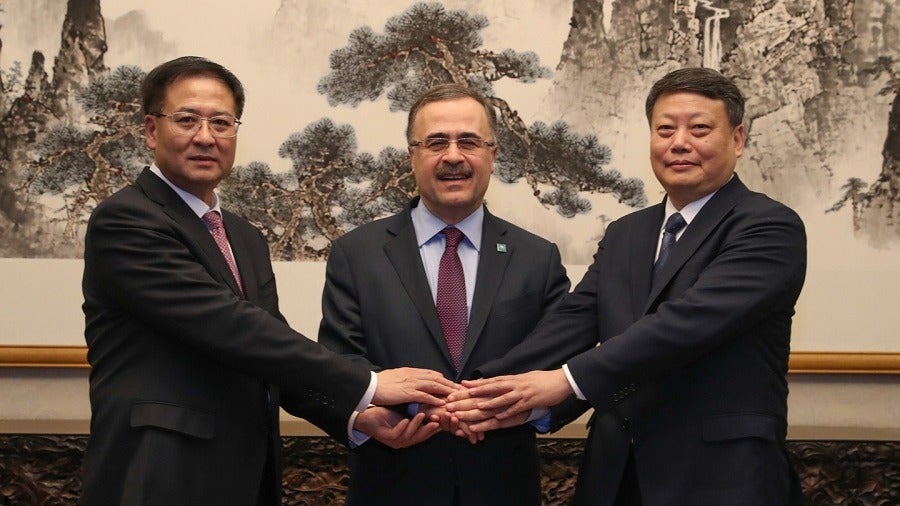
The joint venture, called Huajin Aramco Petrochemical, will build the petrochemical project in Panjin, Liaoning province, said Saudi Aramco.
The Chinese petrochemical project will feature a 300 thousand barrel per day refinery, which will be equipped with a 1.5 million metric tons per annum (mmtpa) ethylene cracker and a 1.3 mmtpa PX unit.
As per the agreement terms, Saudi Aramco will supply up to 70% of the crude feedstock for the petrochemical project, which is targeted to begin operations in 2024.
The Saudi Arabian national oil company will own a stake of 35% in Huajin Aramco Petrochemical, while NORINCO and Panjin will own stakes of 36% and 29%, respectively.
Saudi Aramco CEO Amin Nasser said: “Our agreement today with NORINCO and the Liaoning province is a clear demonstration of Saudi Aramco’s strategy to move from beyond a buyer-seller relationship, to one where we can make significant investments to contribute to China’s economic growth and development.
“Our participation in the integrated refining and petrochemical project in Panjin will strengthen our collaborative efforts to enhance energy security, revitalize key growth sectors and industries in Liaoning and also meet rising demand for products and goods in China’s Northeast region.”
The company disclosed that they are additional plans to set up a fuels retail business, which will integrate further into the value chain.
By the year end, Saudi Aramco expects to create a three-party marketing joint venture company with North Huajin and Liaoning Transportation Construction Investment Group to establish a retail fuel stations network in the target markets.
In October 2018, the Arabian oil giant signed a memorandum of understanding (MoU) with the Zhejiang provincial government in China to acquire a stake in Zhejiang Petrochemical’s new refinery project.
Last month, Saudi Aramco signed a pre-IPO investment agreement with Hyundai Heavy Industries (HHI) Group to acquire a stake of up to 19.9% in Hyundai Oilbank, a South Korean refining company, for around KRW1.8 trillion ($1.6bn).






